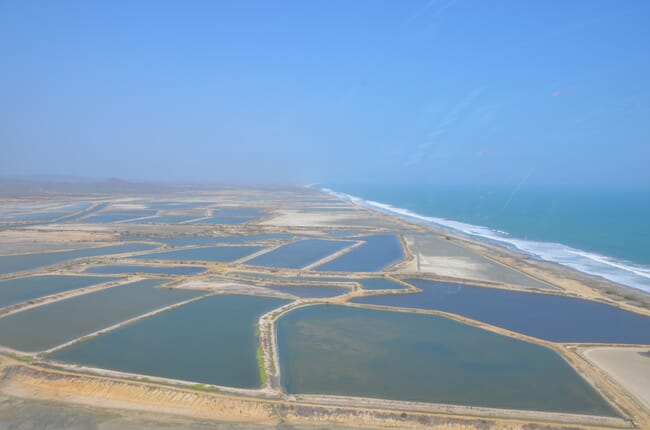
The country's Sustainable Shrimp Partnership has helped the growth of the country's shrimp sector, as well as expanding its export markets.
“When we established SSP five years ago, we wanted to drive change globally,” explains SSP director, Pamela Nath, in a press release. “We consider SSP as an innovation lab where we tackle specific challenges, learn how to address them and share our experience. We set the bar high for ourselves to demonstrate by example and to lead these changes. We call this a race to the top”.
According to SSP, landmarks during its first five years include “the creation of one of the most demanding protocols for shrimp production”, which was developed under the guidance of SSP's advisory board, formed by the World Wildlife Fund (WWF), the Sustainable Trade Initiative (IDH) and the Aquaculture Stewardship Council (ASC), hand-in-hand with the Colombian Institute of Technical Standards and Certification (ICONTEC).
“The SSP qualification establishes that all farms must meet ASC certification, and are subjected to constant verifications during each production cycle to guarantee the zero use of antibiotics, the neutral impact on water, and the complete traceability of the product,” states SSP.
Founding members of the SSP include Grupo Almar, Lanec, Omarsa, Promarisco - Grupo Nueva Pescanova, Songa - Sociedad Nacional de Galápagos. Meanwhile associate members are BioMar, DSM, INVE Aquaculture, Skretting and Vitapro.
“After seeing that unsafe products were being offered to the consumer in the marketplace, with an indiscriminate use of antibiotics, as well as poor social and environmental practices, the founding members of SSP identified the lack of transparent information about the production processes and decided to show that SSP works following criteria with the highest levels of accountability,” says Nath.
One of SSP’s pioneering projects was to implement the use of blockchain technology for its products, by joining the IBM Food Trust ecosystem, a platform that uses blockchain, and developed a traceability application designed especially for consumers, to allow them to access information about the food and its journey to their plate simply by scanning a QR code. This practice ensures that customers receive transparent data on the origin and quality of SSP's premium shrimp. For this reason, international markets have decided to include it in their offer, including the Chilean retail giant Jumbo, where SSP's premium shrimp is available under the Cuisine & Co brand.
SSP's route also includes the collaboration and implementation of plans with leading international organisations in their working areas.
"We are operating alongside other industry players on a carbon footprint measurement project led by IDH. We want to identify the hot spots in shrimp production and work on solutions to reduce their impact" assures the SSP process manager María Fernanda Vilches. These activities are formulated within the SSP Sustainability Leadership Roundtable, a platform in which different organizations strive to encourage the sustainable development of the global farmed shrimp industry, anticipating future challenges and working proactively to overcome them.
In order to reach a larger-scale change inside the aquaculture industry and achieve the highest levels of environmental and social performance, it is also necessary to include small and medium-sized producers in the process and support them to be more competitive internationally. This is another front of action in which the SSP stands out since, together with its advisory board, it has developed a scale-up programme to implement improvement projects.



